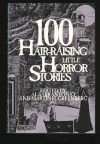Portable Magic
Reading, for me, is entertainment and an escape from the real world. But it can also inform and stretch the boundaries of the life I live.
Currently reading










Unbroken ★★★★☆

This was an amazing story of a WWII airman who survived his bomber wrecking in the Pacific, drifting in a tiny raft for over a month, internment in several Japanese POW camps, and the stress, depression, and anxiety in the aftermath of the war. It gave me a new connection with that history and the WWII vets that I’ve known as I’ve read and studied very little about the war in the Pacific or the experiences of our servicemen there. I had not realized the torment and abuse that they had suffered at the hands of the Japanese. The author makes an attempt to explain the political and cultural factors that authorized and even encouraged such treatment, but does not attempt to excuse it. Although this was only a few generations ago, it’s hard to connect these facts with what little I know of Japan and its people today. I was a little disgusted but not surprised at
(show spoiler)Most of all, I was touched by how Louie found peace for himself and forgiveness for his tormenters after the war, rising above it to become a man who continuously gave to others. I don’t know that I would be able to find such generosity and strength within myself, but without it he could not have healed and become the man that he was in the end – as the title says, “unbroken”, in every way.
I also appreciated hearing the outcomes for many of his friends who shared these experiences with him.
This was the audiobook version, purchased from Audible. Edward Herrmann’s narration was an adequate vehicle for the story, but for the most part unremarkable. This book doesn’t quite earn 5 stars, because in many ways it moved along very slowly, often getting bogged down in details that I found uninteresting and would have skimmed over had I been reading a bound version rather than audio where you’re limited to the narrator’s pace.
 3
3
 4
4